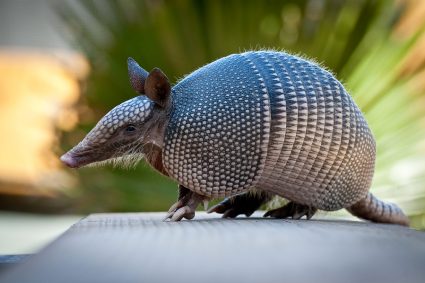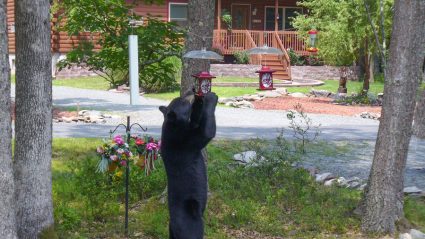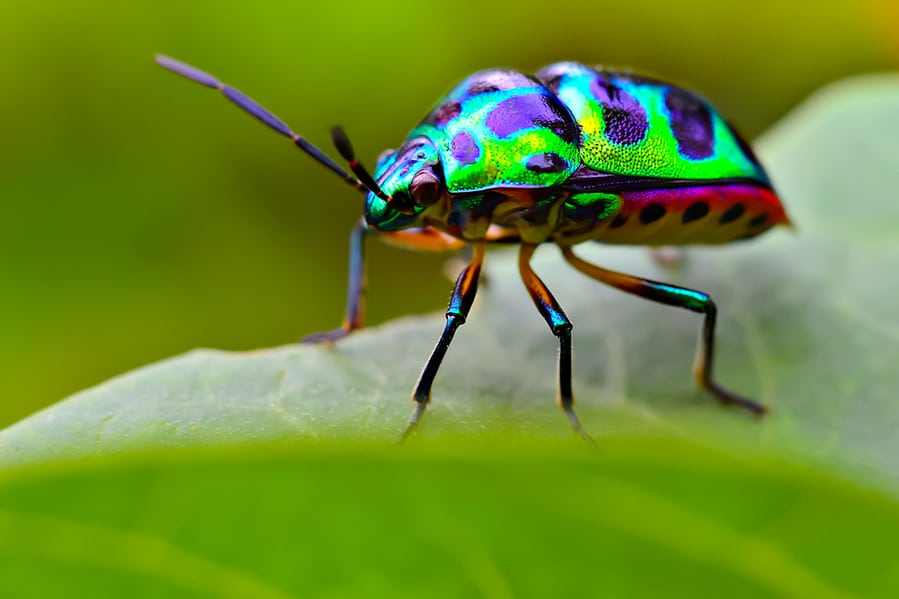
Bugs can be a major nuisance in our daily lives, whether flying around our heads or crawling on our walls.
Imagine spending a summer evening outside, enjoying the warmth and fresh air, only constantly interrupted by swarms of pesky bugs. Who wants to deal with that?
Not only are bugs unsightly, but some can also carry diseases or cause allergic reactions.
The good news is that there are natural and safe ways to scare bugs away without using harmful chemicals.
Bugs can be a major nuisance in our daily lives. However, there are natural and safe ways to scare them away without using harmful chemicals.
Natural methods for scaring bugs away include the use of;
- Natural repellent.
- Physical barriers.
- Light and sound.
- Household items.
Understanding the types of bugs and their behavior can help you to scare them away effectively.
Natural repellents like essential oils, plants, and herbs can repel bugs.
Physical barriers like screens and caulking can prevent bugs from entering your home.
Certain lights and sounds can also be used to attract and trap bugs.
Some common household items can also be used to repel bugs.
And if the infestation is severe, professional pest control can be an effective solution.
This blog post explores different methods for scaring bugs away, from natural repellents to physical barriers and even professional pest control services.
We have you covered whether you’re dealing with ants, mosquitoes, flies, or cockroaches.
So, let’s start finding the best solution for scaring bugs away in your home.
Understanding the Types of Bugs
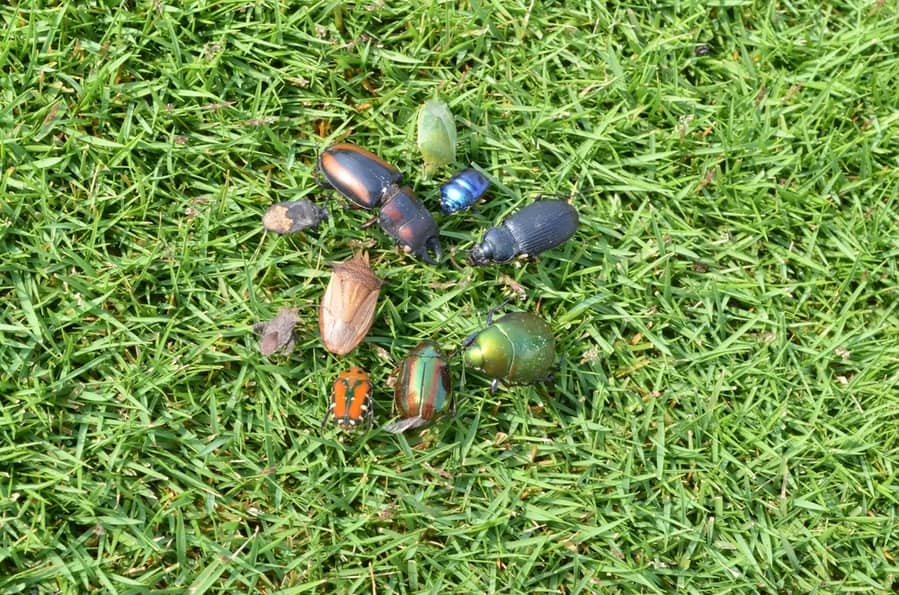
Differentiating between flying and crawling bugs is important as the method for getting rid of them can vary.
Flying bugs like mosquitoes and flies can be scared away using certain lights and sounds.
Crawling bugs like ants and cockroaches can be scared away using natural repellents, physical barriers, and professional pest control services.
Common bugs found in homes include ants, mosquitoes, flies, and cockroaches.
Ants can be a major problem in kitchens and bathrooms, while mosquitoes and flies are often found near standing water or open windows. Cockroaches can be found in any room of the house but are particularly drawn to warm, moist areas.
Identifying the specific type of bug can help you to know how to scare them away effectively.
To identify the type of bug, look closely at its physical characteristics, like size, color, and shape. Also, you can snap the bug and search for the picture online for more information.
When you know the type of bug you’re dealing with, you can also understand its behavior and habitat, which will help you scare them away.
Let’s take; for instance, if you know mosquitoes are attracted to standing water; you can eliminate any standing water around your home to reduce the number of mosquitoes.
It’s important to keep the environment clean and hygienic to prevent bugs from infesting your home, as this could be the first step in scaring them away.
Natural Repellents
Natural repellents are a safe and effective way to scare away bugs compared to harmful chemicals. And essential oils, plants, and herbs can all be used as natural repellents.
Safe for both humans and pets; unlike chemical pesticides, natural repellents do not have any harmful side effects and are environmentally friendly.
Essential Oils

Essential oils are a safe and natural approach to repelling insects. These concentrated plant extracts contain strong odors that bugs find repulsive and may be used to create a bug-free zone around your house.
Bug-repellent essential oils include peppermint, citronella, and eucalyptus. You may use these oils in a diffuser or make your insect spray by combining a few drops with water in a spray bottle.
Before putting essential oils on large skin sections, test a tiny area first, as some people may be allergic to them.
Most Effective Essential Oils
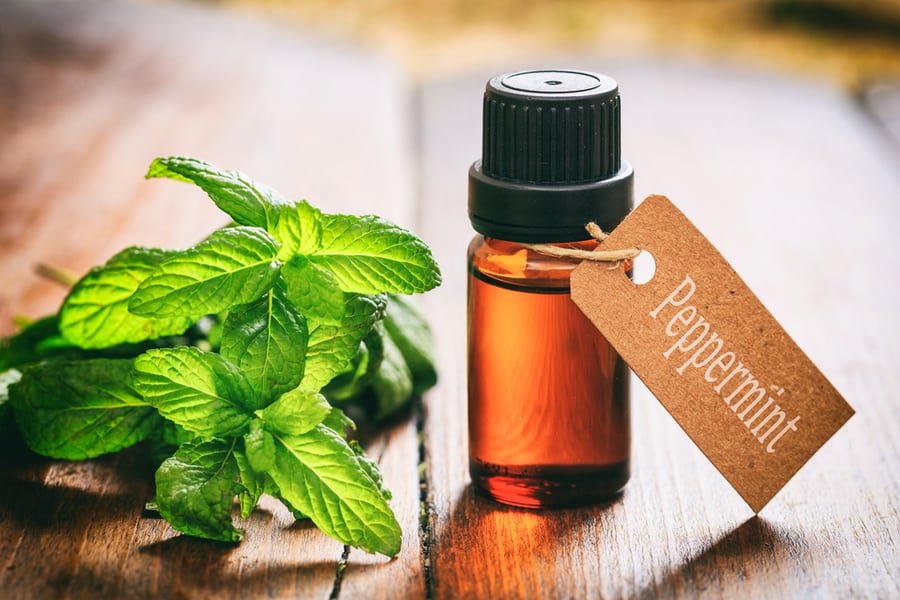
Some of the most effective bug-repelling essential oils include peppermint, lemongrass, and citronella.
Peppermint oil has a strong, minty aroma that bugs find unappealing, while lemongrass oil is known to repel mosquitoes and other flying insects.
Citronella oil, extracted from the citronella plant leaves, is a well-known natural insect repellent.
DIY Bug Spray
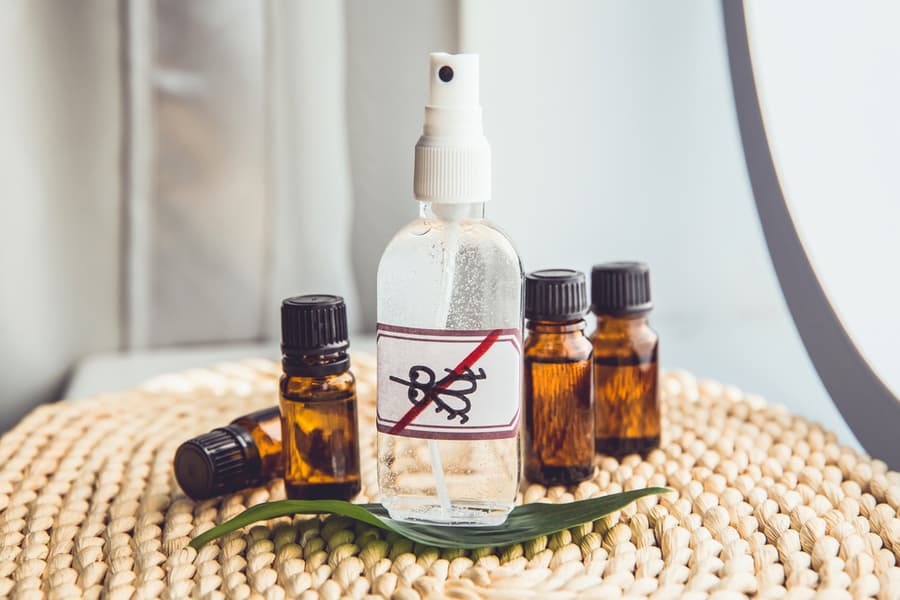
To make your DIY bug spray using essential oils, you’ll need a spray bottle and a carrier oil such as witch hazel or water. Mix 15-20 drops of your chosen essential oil(s) with 1 ounce of carrier oil or water and shake well.
Spray the mixture around your home, especially in areas where bugs congregate. Test the spray on a small skin area before applying it to your entire body.
Essential oils are highly concentrated, so you should use them with care.
Always follow the manufacturer’s instructions; dilute the oils before use.
Also, pregnant women and children should not use essential oils, and you should always watch out not to get essential oils in your eyes or mouth.
Plants
Certain plants have natural bug-repelling properties and can be used to create a bug-free zone around your home. For example, plants and herbs like marigolds, basil, and mint can keep bugs away effectively when planted.
These plants repel bugs and add a decorative touch to your home. You can plant them in your garden or pots inside your home.
You can naturally keep bugs at bay when incorporating these plants into your garden or indoor spaces.
Most Effective Plants
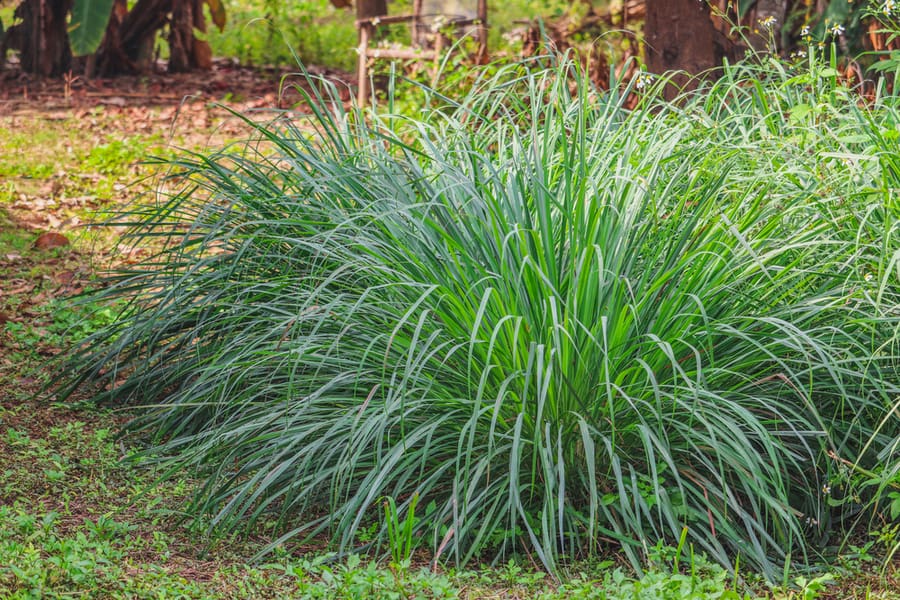
Marigolds, citronella grass, and geraniums are some of the most effective bug-repelling plants.
Mosquitoes and other flying insects are repelled by the scent marigolds emit, while citronella grass is a natural source of citronella, the bug-repelling compound.
Geraniums also have a natural repelling property. But, unfortunately, they emit a strong scent that bugs can’t stand.
Incorporating Into Your Space
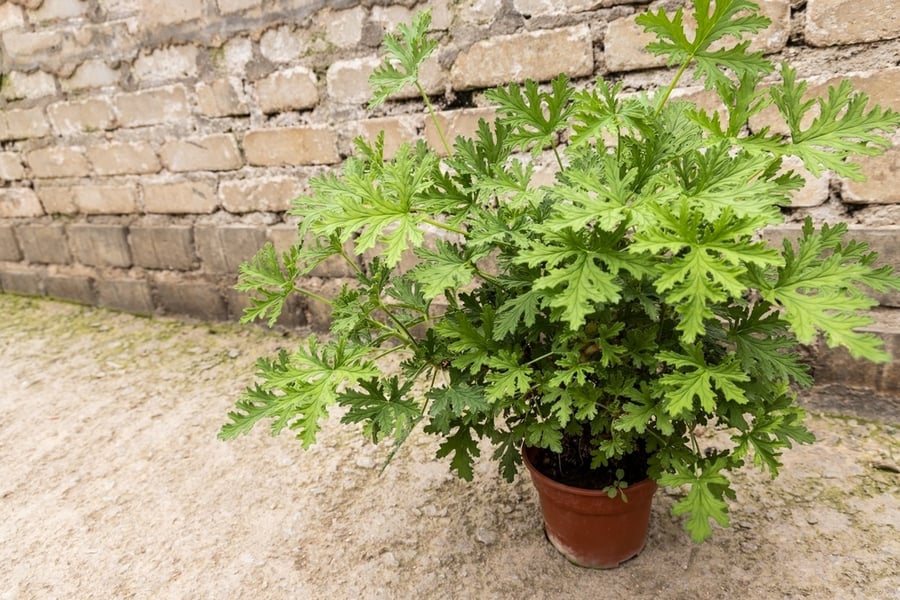
You can plant bug-repelling plants in pots or garden beds to incorporate into your garden or indoor spaces.
You could also dry and crush the leaves of these plants and use them to make a homemade bug repellent.
Remember to keep the plants healthy and well-watered to maximize their bug-repelling effects.
Note: Remember that not all plants are suitable for all climates. This is so you can be sure of choosing plants that are well-suited to your area. Also, note that while these plants have been proven to have bug-repelling properties, they may not keep all bugs away completely.
Remember:
To have a lasting effect, reapply the oils or spray the plants regularly.
And, if you have an infestation of bugs, using natural repellents alone may not be enough to eliminate them. You will have to combine it with other methods.
Physical Barriers
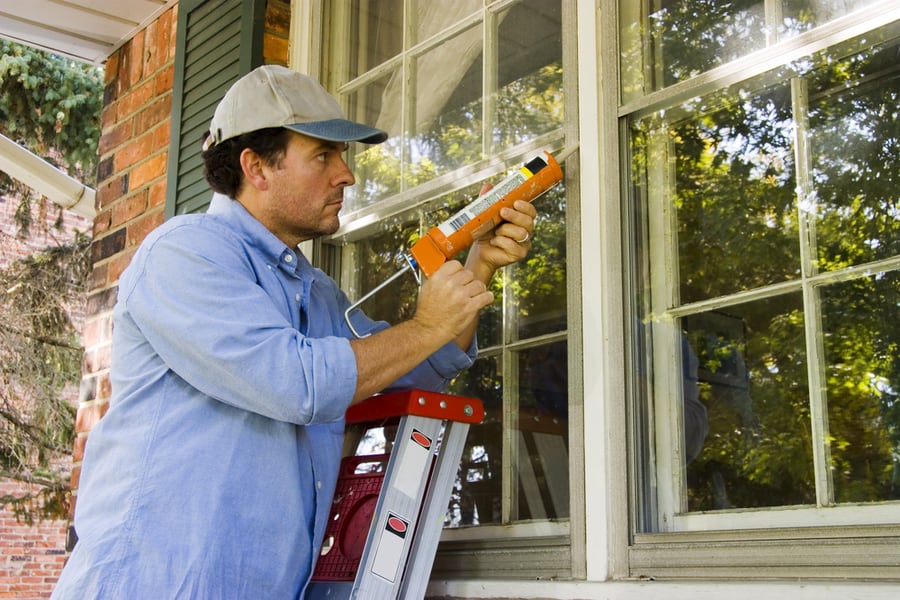
Physical barriers such as screens and caulking can prevent bugs from entering your home. For example, screens on windows and doors can keep flying bugs out, while caulking around pipes and wall cracks can keep crawling bugs from entering.
Screens should be checked regularly for holes or tears and repaired or replaced if necessary. Keep your windows and doors closed when not in use to prevent bugs from entering.
Caulking should be applied around pipes, wall cracks, and other potential entry points for bugs. This can prevent bugs from entering and can also help to prevent drafts, saving on energy costs.
If bugs are determined can still find a way in, even with physical barriers in place. So, combining physical barriers with other methods, such as natural repellents, to create a comprehensive approach to scaring bugs away is important.
Also, regularly cleaning areas around the house and removing any garbage or food scraps can help discourage bugs from entering the house and ensure that they will not find a suitable environment to live in if they enter.
Light and Sound
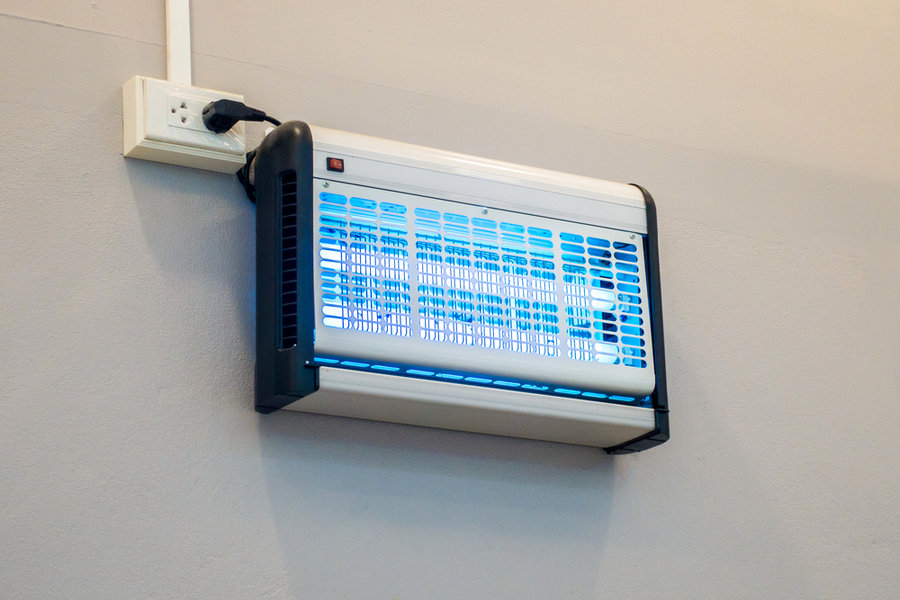
Certain lights, such as UV and bug zappers, can attract and trap bugs. For example, UV lights are particularly effective in trapping flying bugs such as mosquitoes and flies.
Bug zappers use a high-voltage electric grid to electrocute flying bugs attracted to the light.
Certain sounds, like one from ultrasonic devices, can also repel bugs.
Ultrasonic devices emit high-frequency sound waves that are inaudible to humans but can be heard by bugs.
This sound can make bugs uncomfortable and discourage them from staying in the area.
When using lights and sounds to scare bugs away, use them properly. One instance is placing UV lights away from areas where people congregate to avoid attracting flying bugs to those areas.
Some bugs, cockroaches specifically, are not attracted to light, and using a light trap won’t effectively repel them.
Also, sound devices may not be suitable for all types of bugs, and it’s important to research the type of bug you’re dealing with before using a sound device.
Additionally, light and sound methods can be less effective in noisy areas like cities. Repelling bugs here may require more powerful equipment.
Household Items
You can also use common household items to repel bugs. These items are a great option for keeping bugs at bay as they’re often inexpensive and easy to find.
Effective Household Items

Some bug-repelling household items, most effective at repelling bugs, include dryer sheets, vinegar, and baking soda.
Bugs find scents from dryer sheets unappealing, while they don’t like the acidic environment that vinegar can create by cleaning surfaces.
Baking soda is also known to repel bugs when mixed with other ingredients such as sugar and flour.
DIY Bug Repellent

Mix equal vinegar and water in a spray bottle to make your DIY bug repellent using household items.
You can mix two tablespoons of baking soda, 1/4 cup of sugar, and 1/4 cup of flour and place them in small bowls around your home.
Another alternative is to place dryer sheets in areas where bugs tend to congregate, such as near doorways or windows.
Household items may not be as effective as essential oils or plants in repelling bugs.
Some household items may not be suitable for certain surfaces or fabrics, so you should be sure to test them on a small surface area before using them.
Professional Pest Control
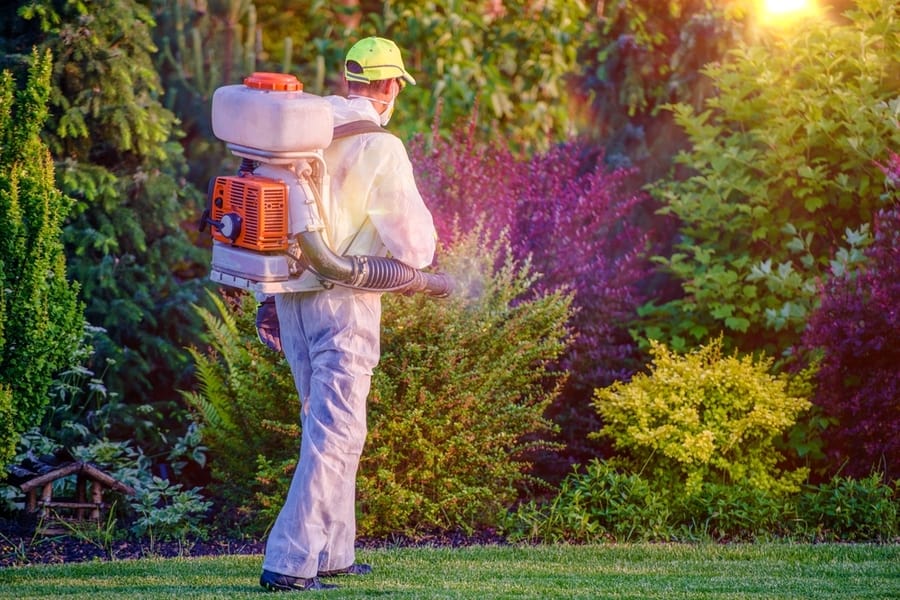
Hiring a professional pest control service is an efficient way to rid your property of bug infestation. They can determine the sort of insect you have and eradicate the cause of infestation.
Professional pest control services combine different methods, including pesticides, to eliminate bugs.
These pesticides are formulated specifically to target specific bugs and are applied by trained professionals who can use them safely.
Pest control professionals can also prevent bugs from returning through ongoing maintenance, including regular inspections, treatments, and monitoring to ensure your home remains bug-free.
Research different pest control companies in your area, read reviews and ask for references to find a reputable pest control service. Look for a company that has been in business for a while and is licensed and insured.
While professional pest control can efficiently eliminate a bug infestation, it can also be expensive.
Furthermore, many trips may be required depending on the following:
- The type of bugs.
- The intensity of the infestation.
- The size of the property.
As a result, before deciding on professional pest control, you should evaluate your budget and the extent of the infestation.
Conclusion
In this blog post, we’ve discussed various natural methods for scaring bugs away, including the use of Natural repellents such as essential oils and plants, Physical barriers, Light and sound, and Household items.
We’ve highlighted some of the most effective options and provided instructions for using them to create a bug-free zone around your home.
It’s important to remember that using natural methods to repel bugs is more environmentally friendly and safer for you and your family.
Chemical-based bug sprays and repellents can have negative health effects, so it’s always best to opt for natural alternatives.
It would be best to remember that scaring bugs away is an ongoing process and requires regular maintenance to keep the bugs away. Combining different methods can provide a comprehensive approach to scaring bugs away.
Whether making your DIY bug spray with essential oils, planting bug-repelling plants in your garden, or experimenting with household items, there are plenty of ways to keep bugs at bay naturally.
You’re encouraged to try some of the methods (discussed in the post) and let us know how they worked for you.
Share your results and tips with others in the comments section, and help create a bug-free community.
Frequently Asked Questions
What Will Keep Bugs Away From Me?
Different bugs are attracted to different things, and the best way to keep them away from yourself is to find out what attracts them and use that to your advantage.
What Scares a Bug?
Different people have different reactions to different things so are bugs, so there is no one answer to this question. Instead, you must experiment with different methods until you find something that works for you and your family.
What Smells Do Bugs Stay Away From?
Some of the most common bug-repelling smells that effectively keep bugs away include:
- Citrus
- Lavender
- Peppermint
What Annoys Bugs and Makes Them Go Away?
Some things that annoy bugs and make them disappear include loud noises, bright lights, strong smells, and movement.
How Do Light and Sound Work To Repel Bugs?
Light and sound are two popular methods for repelling bugs.
Sound waves cause a sudden environmental change that can confuse and scare bugs away.
Similarly, light can cause predators (like birds) to shy away from an area, leading to a bug-free zone.
What Are the Benefits of Using Essential Oils To Repel Bugs?
Essential oils are known for their many health benefits, including effectively repelling bugs.
Many people find that essential oils work best when blended with other natural ingredients like carrier oil, making applying them safely and effectively easy.
Additionally, using essential oils is environmentally friendly. You don’t need to waste expensive pesticides on your property.
What Do I Do if Bugs Keep Coming Back Even After Using All These Methods?
You may need to experiment with different methods until you find ones that work for you.
Remember that repelling bugs is an ongoing process, so it is important to try different things until you find something that works for you.




